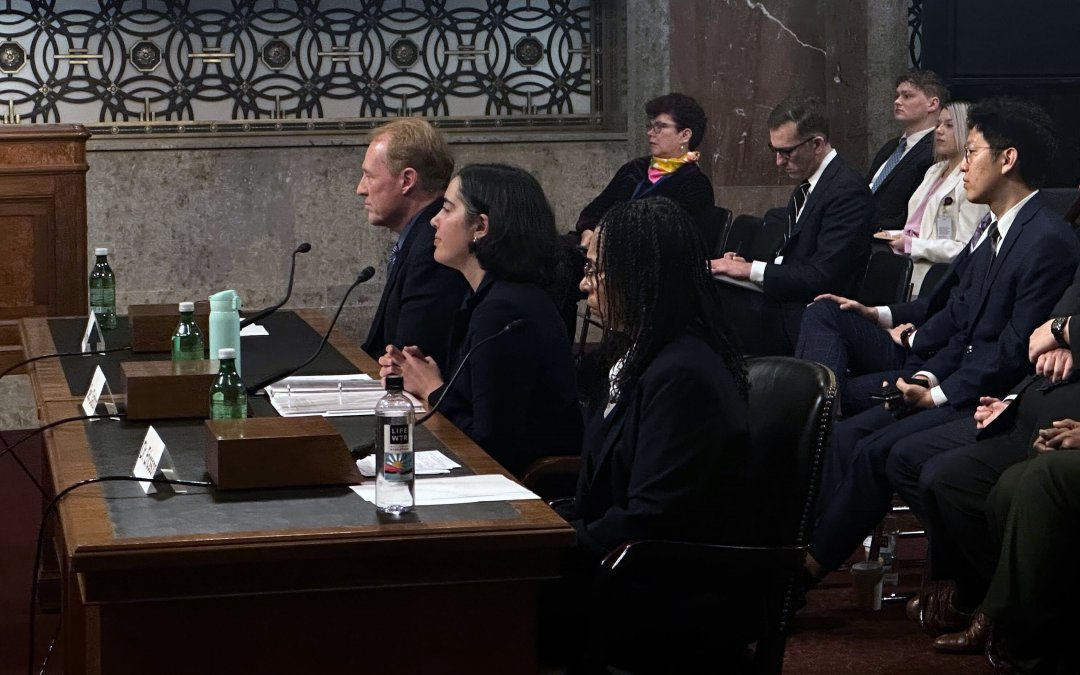WASHINGTON – The Senate Armed Services Committee convened to scrutinize the nominations of three crucial roles within the Department of Defense on Tuesday. Melissa Griffin Dalton, nominated for Under Secretary of the Air Force, Douglas Craig Schmidt, nominated for Director of Operational Test and Evaluation, and Aprille Joy Ericsson, nominated for Assistant Secretary, faced a thorough examination. The hearing delved into their qualifications, experiences, and commitment to national security, providing a vital step in the confirmation process for these key positions.
The committee questioned them on a variety of critical topics, such as the cost-effectiveness of missile defense systems, the need for urgency in addressing hypersonics and directed energy weapons, like lasers and particle beam technology used in combat, and the importance of collaboration with small businesses.
Senator Angus King (D-Maine) underscored the critical challenges confronting the Air Force by highlighting the pressing issue of the U.S. lagging in hypersonics and directed energy, deeming it a “hair-on-fire” urgent priority.
“I’m always excited when I get my hypersonics,” Ericsson replied. “I’m hoping that perhaps we can leverage the technology developed at NASA, fostering collaboration between the Department of Defense and other agencies to advance this technology.”
Chairman Jack Reed (D-R.I.) addressed the crucial challenge of boosting the STEM workforce, emphasizing the significance of recruitment, training, and retention. Ericsson replied by highlighting the need to cast a wide net, including adding more women. She stressed the importance of being inclusive and focusing on historically black colleges and universities (HBCUs), which contribute significantly to African Americans in STEM disciplines.
“It is very important for us to consider these diverse spots because we have unique experiences from the environments we are in, and it will ultimately be very important to have in our workforce so we can deliver the best technology for our future,” Ericsson said.
Another key challenge addressed by Sen. Reed is the rapidly growing field of artificial intelligence. He voiced concerns about seamlessly integrating AI into security systems.
“I’ve worked with artificial intelligence for many years. It’s a very promising yet challenging technology,” Schmidt said. “If confirmed, I am committed to collaborating with various stakeholders to ensure the responsible and effective utilization of AI.”
While Schmidt and Ericsson confidently addressed the senators’ inquiries, Dalton came under more intense scrutiny as her work in her previous role left some lawmakers casting doubt about her suitability for the role of Under Secretary of the Air Force.
“I think you have a lot of work to do to create some confidence in a lot of the members of this committee,” said Senator Mike Rounds (R-S.D.).
Dalton, who had mentioned in her opening remarks how she was going to continue communicating with Congress promptly, was questioned by Roger Wicker (R-Miss.), Markwayne Mullin (R-Okla.), and Eric Schmidtt (R-Mo.), on why she hasn’t been communicating with them in a timely and responsible manner. Sen. Wicker used an example from a letter he sent on March 16th, to which Dalton replied on August 1st.
“I find your performance in your previous role so unsatisfactory that I have real doubts that it is going to get any better,” said Wicker.
Concerns were also raised about Dalton’s handling of the border wall and management of materials and associated costs. Senator Gary Peters (D-Mich.) questioned her about the materials’ substantial daily storage costs and the decision to sell them off, emphasizing the significant financial impact on taxpayers. Dalton’s response said the matter was outside her portfolio.
“Forget about your portfolio,” Peters replied. “We’ve established that you don’t take responsibility.”


